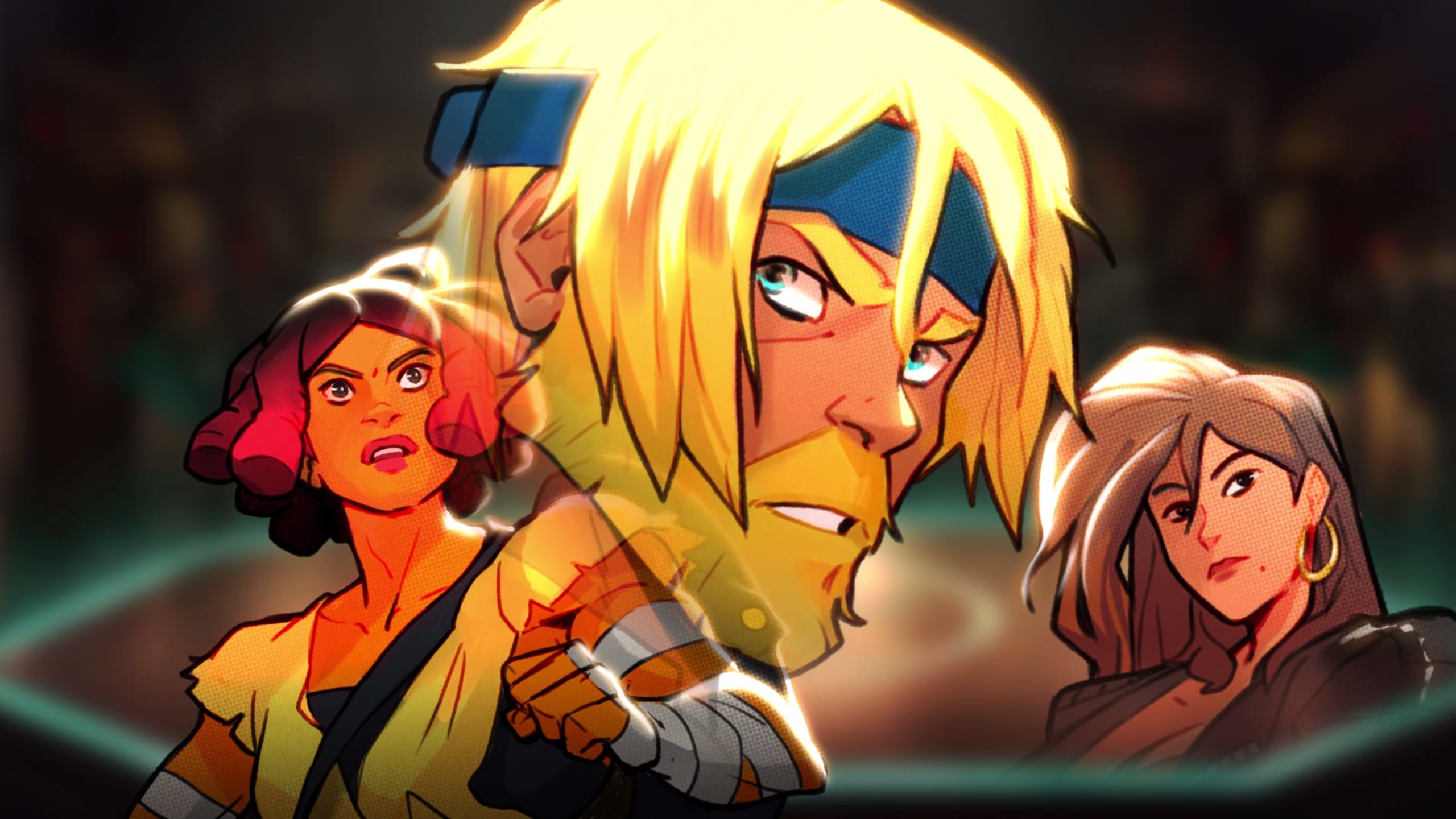Our Verdict
Streets of Rage doesn't do much to innovate, but it's a beautiful brawler with just enough depth to stay engaging through multiple runs.
PC Gamer's got your back
Streets of Rage is so deeply '90s, its main characters are named Axel and Blaze. They're the kinds of names that made 12-year-olds whisper whoa, cool as they huddled around the box in a Blockbuster. Streets of Rage 4 is the game I imagine those kids creating if they grew up to be talented artists and videogame developers, and wanted to remake the thing they loved as kids.
What is it? Punching guys to sick synth beats
Expect to pay $25
Developer Dotemu, Lizardcube, Guard Crush
Publisher Dotemu
Reviewed on GTX 980, Intel i7-6700K, 16GB RAM
Multiplayer Four player online/offline
Link Official site
I played the first two Streets of Rage games a lot on the Sega Genesis as a kid, too, and on rare occasions got to feed quarter after quarter into other brawlers in arcades. Teenage Mutant Ninja Turtles: Turtles in Time was my favorite, but I also loved X-Men and Capcom's Knights of the Round. Streets of Rage 4 does not try to reinvent the basics of those games. You walk to the right; you punch guys; sometimes, for a change of pace, you throw them.
Streets of Rage 4 doesn't overcomplicate this design, and that feels appropriate for a sequel made 25 years after the most recent game in the series. Homage is clearly the point here. And it is a beautiful homage: the artists from Lizardcube are maybe the best 2D artists working in games today. This review could perhaps be the words "Don't worry, it plays fine" followed by a hundred screenshots of Streets of Rage 4's characters and stages, and you'd get the point.
The best reason to play this game is to see the fluid attack animations for each character, to be distracted by one gorgeous backdrop after another, to scrutinize each stage for Easter eggs and cute little details. The second best reason is to revel in the music, which will be on my shortlist for soundtrack of the year. Multiple artists, including famed Streets of Rage composer Yuzo Koshiro, contributed tracks, which manage to retain the series' synthy vibe while incorporating bits of funk and rock and even dubstep.
I did enjoy the punching and the kicking in Streets of Rage quite a bit, too, thanks to that great animation and a few simple advancements compared to the old games. There is some depth here. Each character has a light and heavy attack, a combo finisher triggered by attacking while mashing forward, and a pair of special attacks that do bigger damage but use up a chunk of your health. You can get that health back by walloping on enemies, but take a single hit and it disappears.
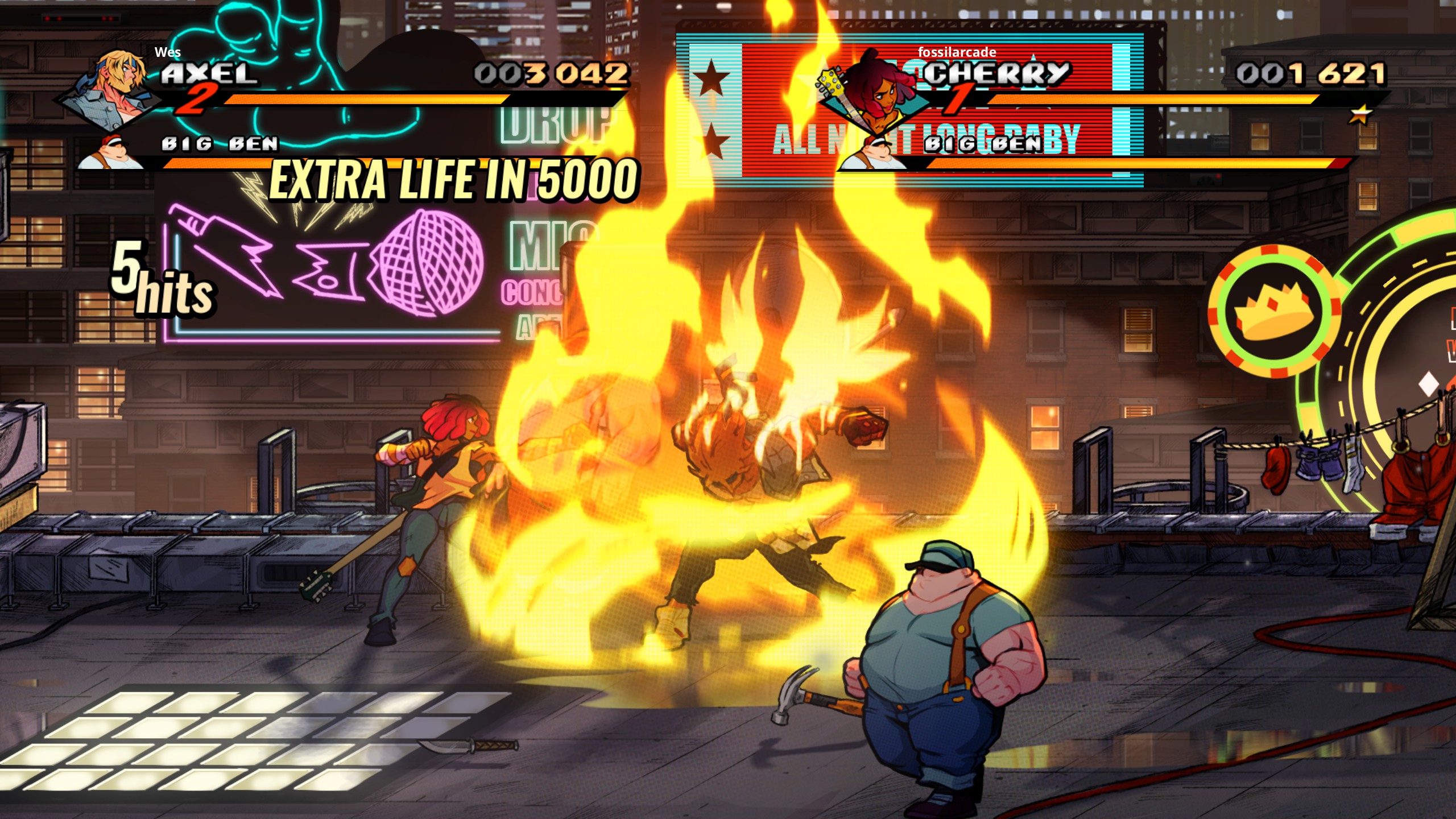
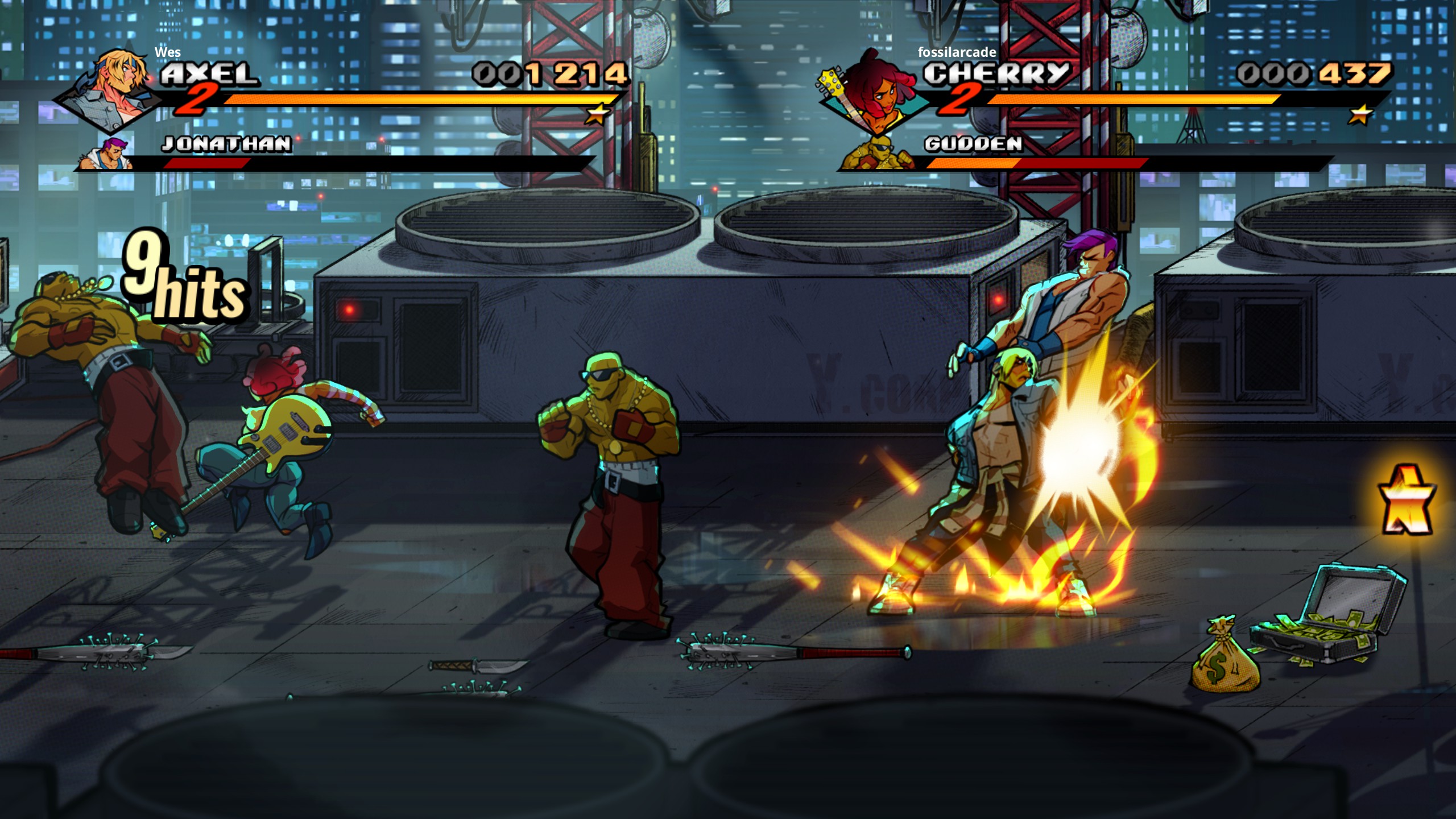
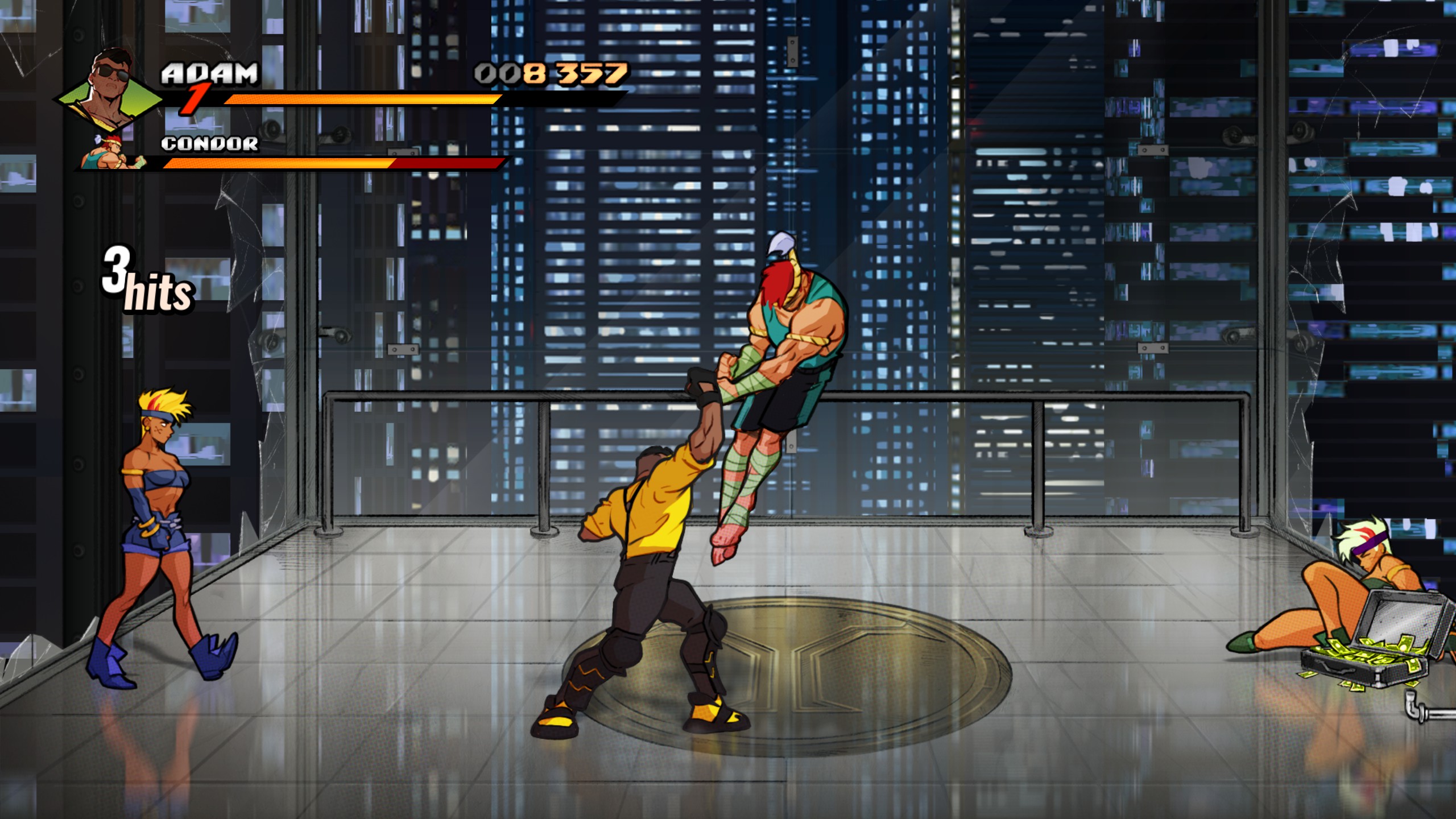
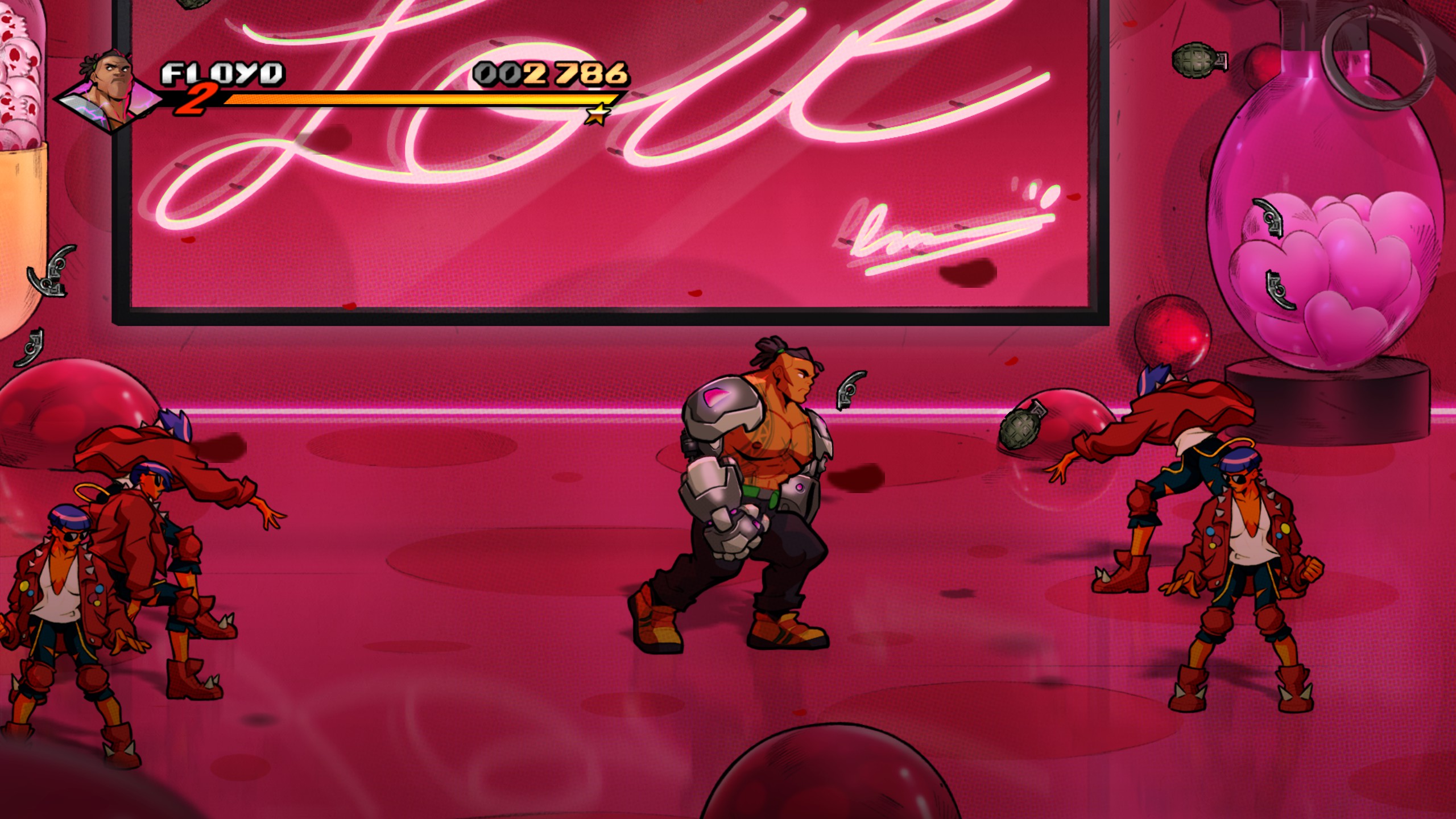

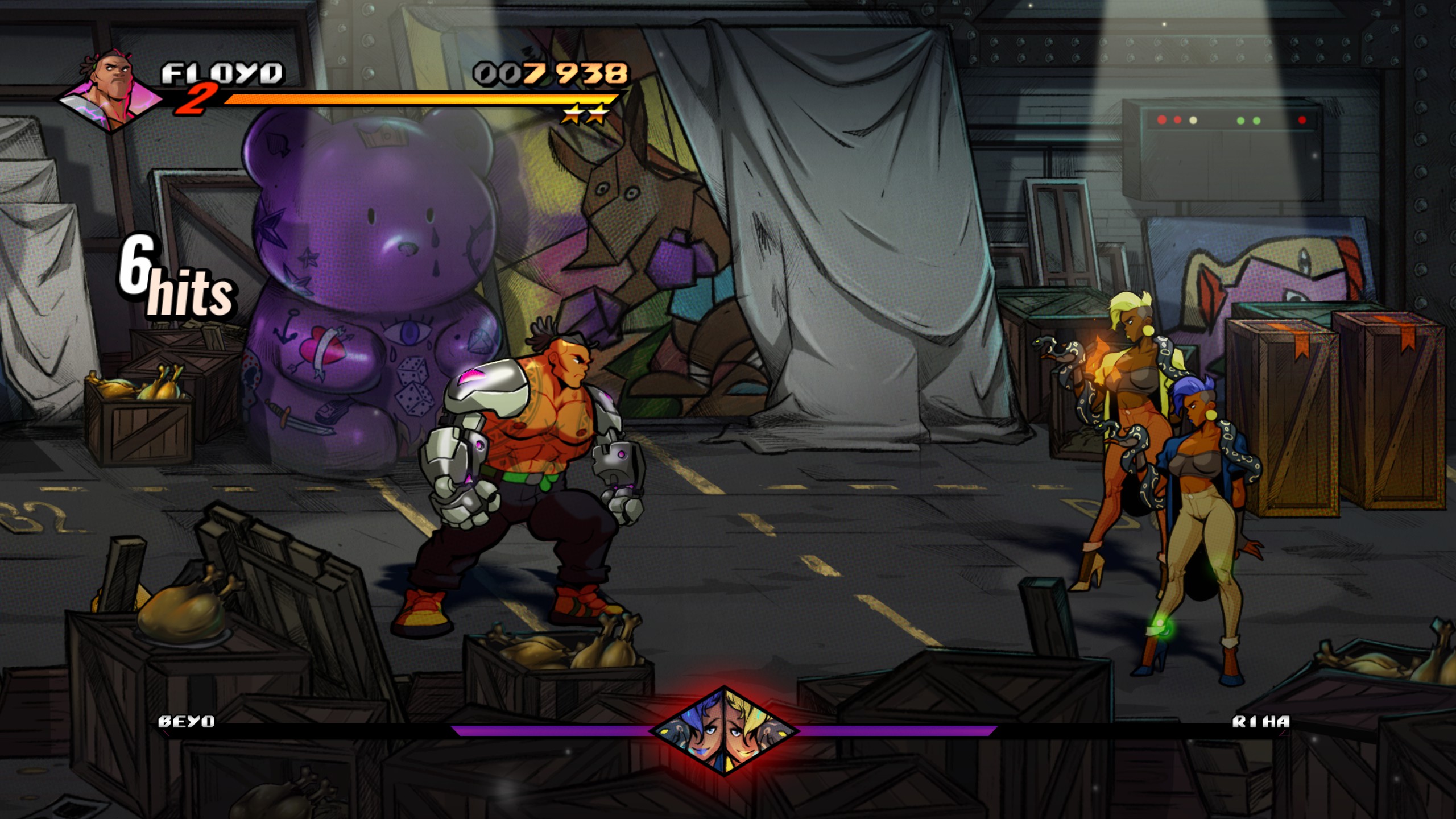
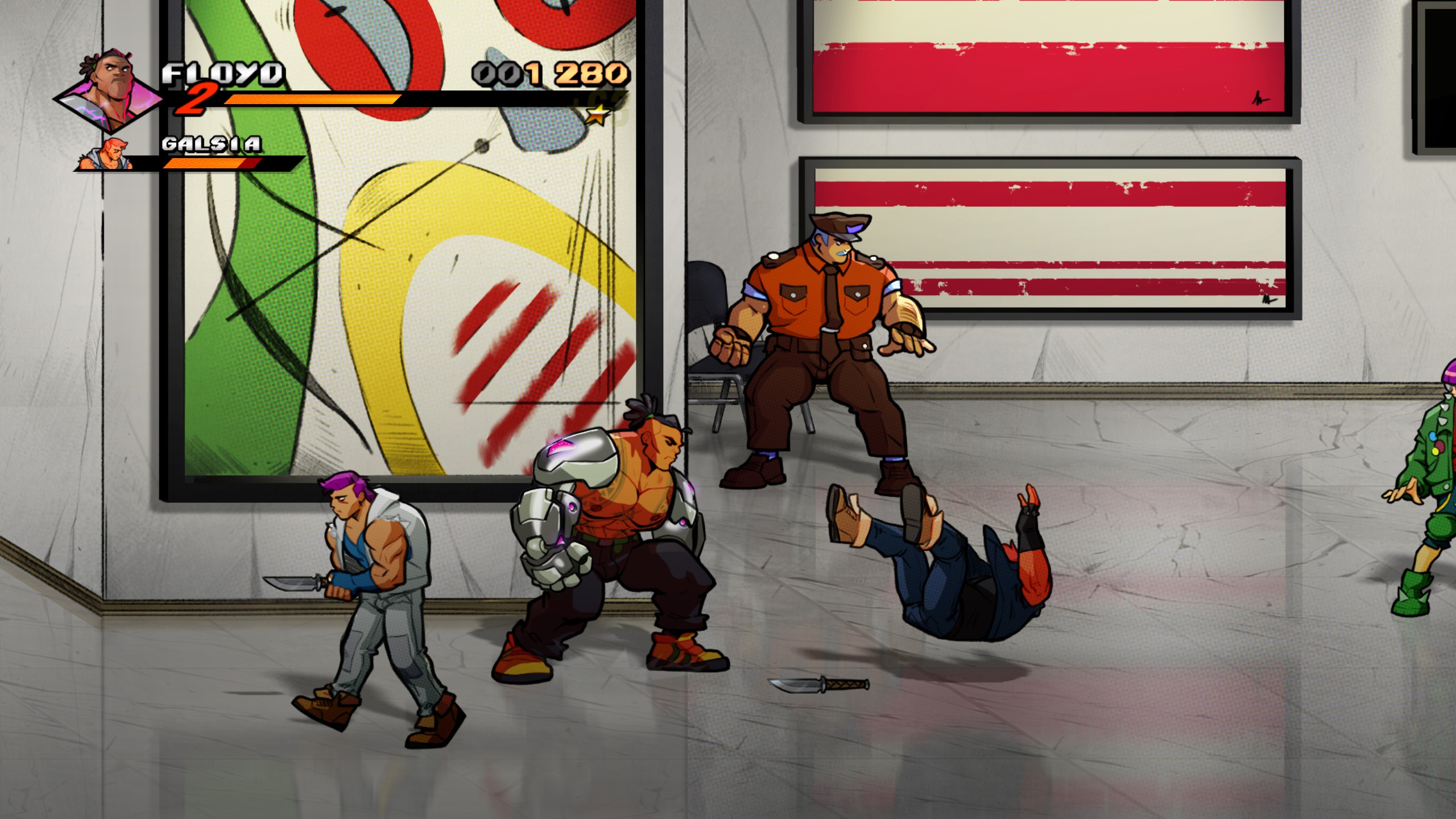
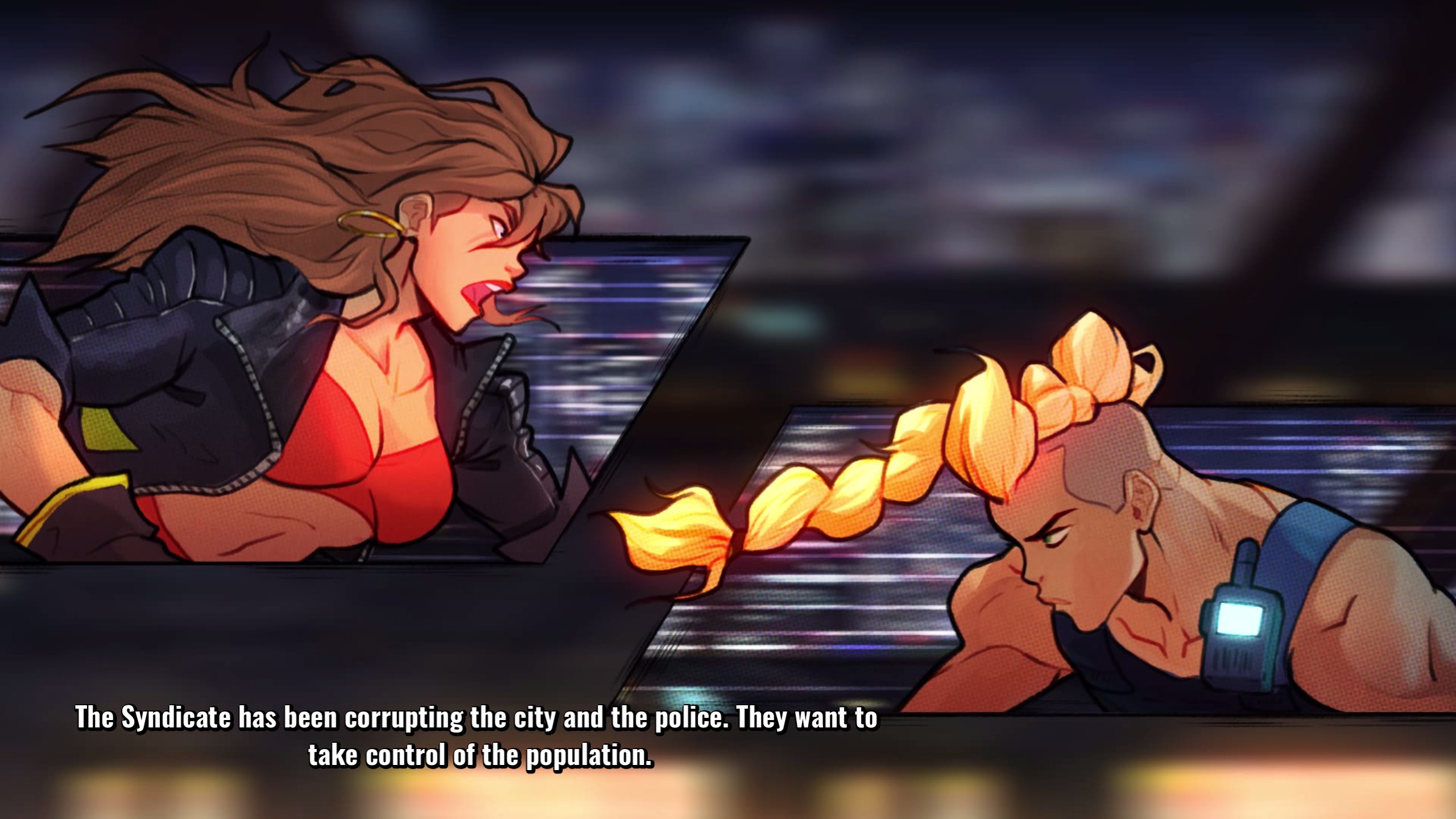
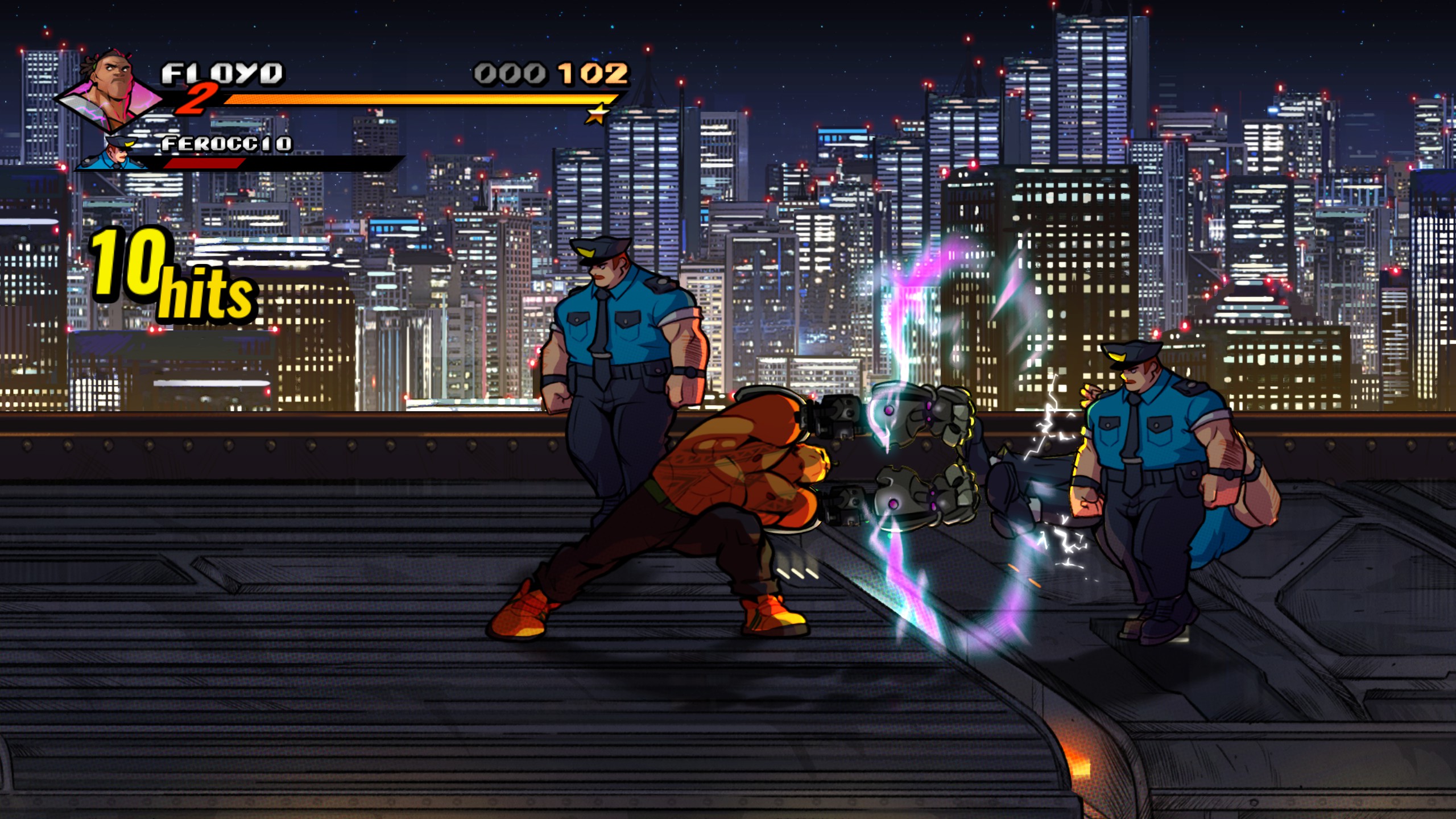
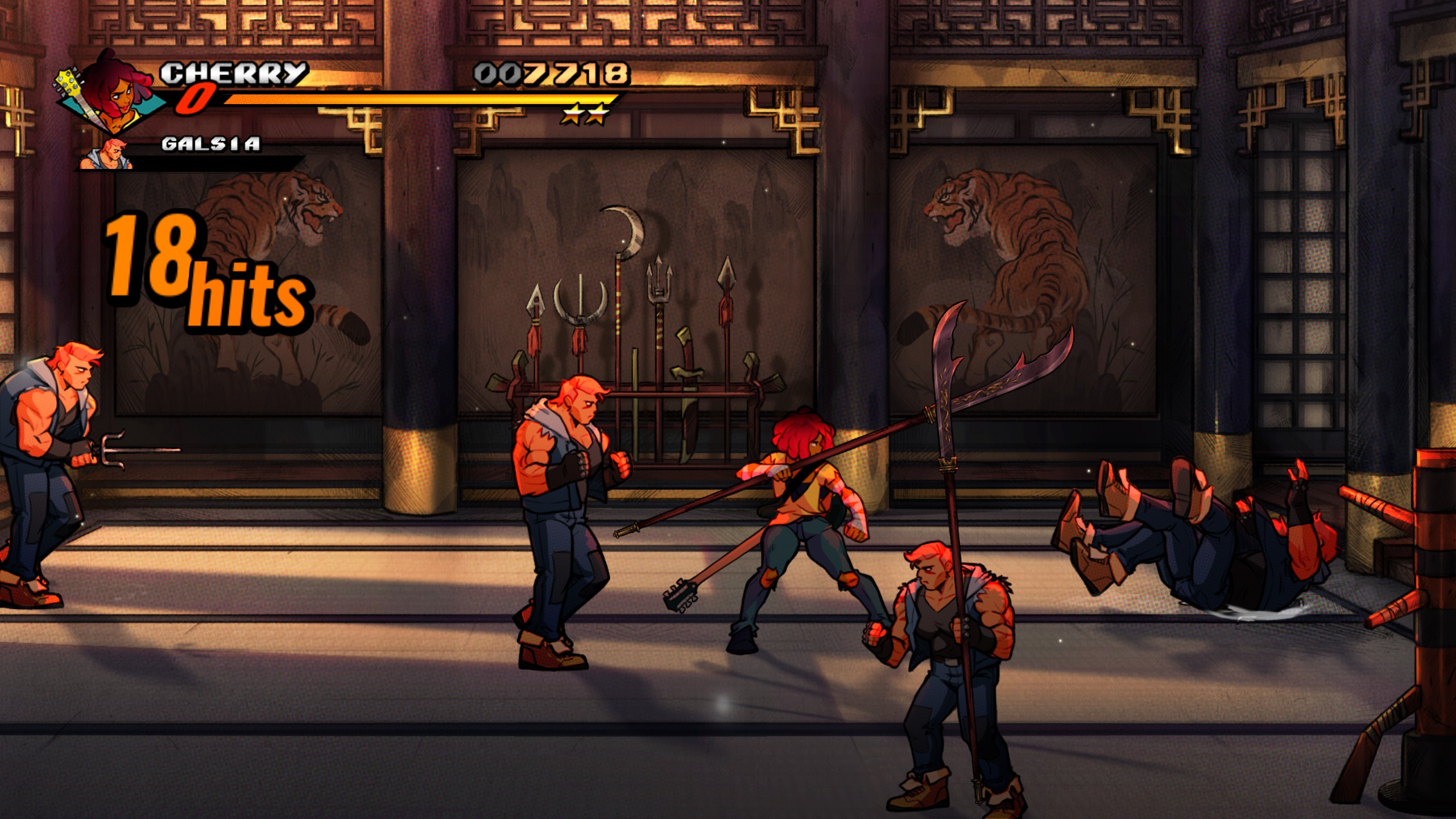
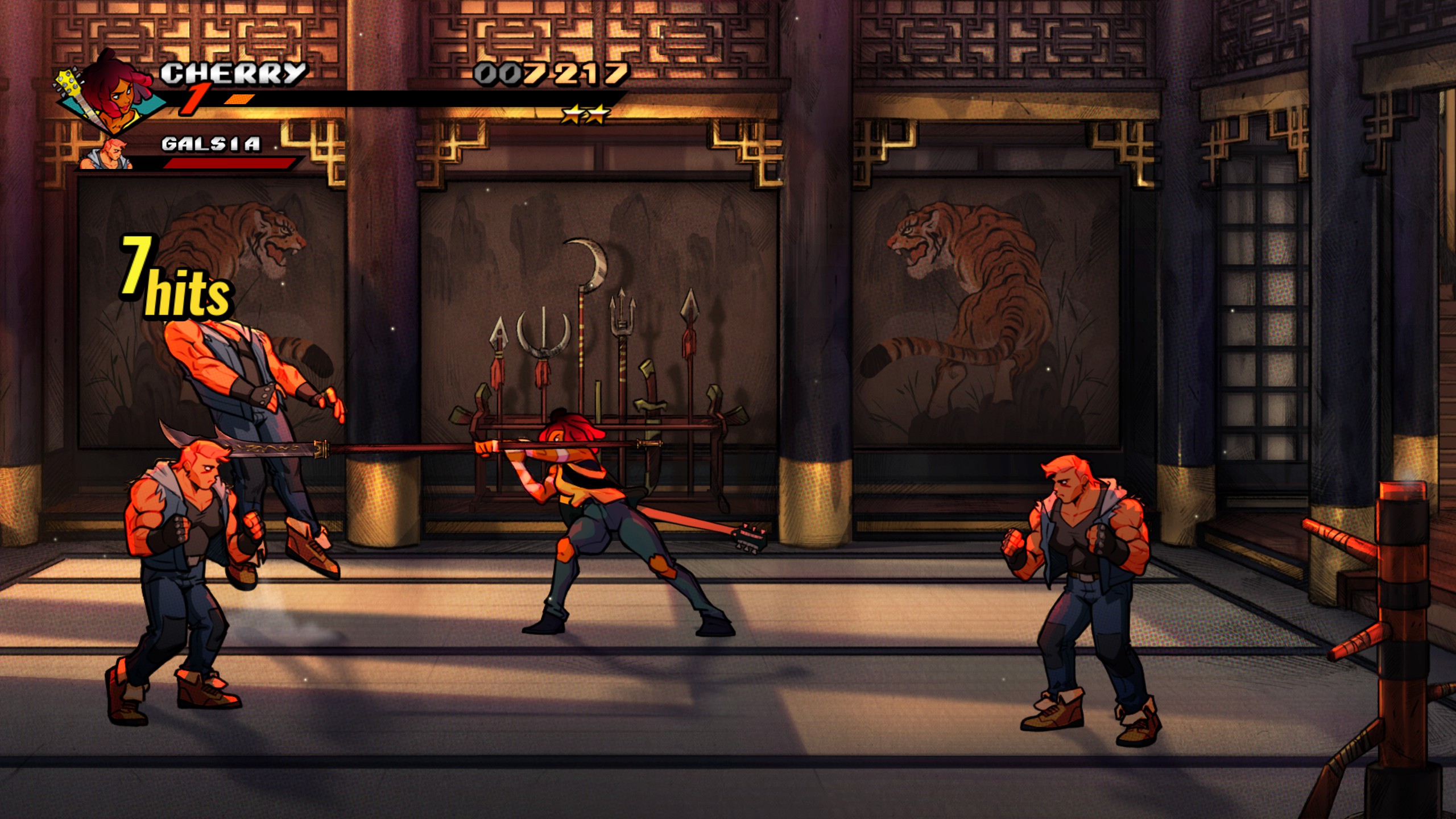
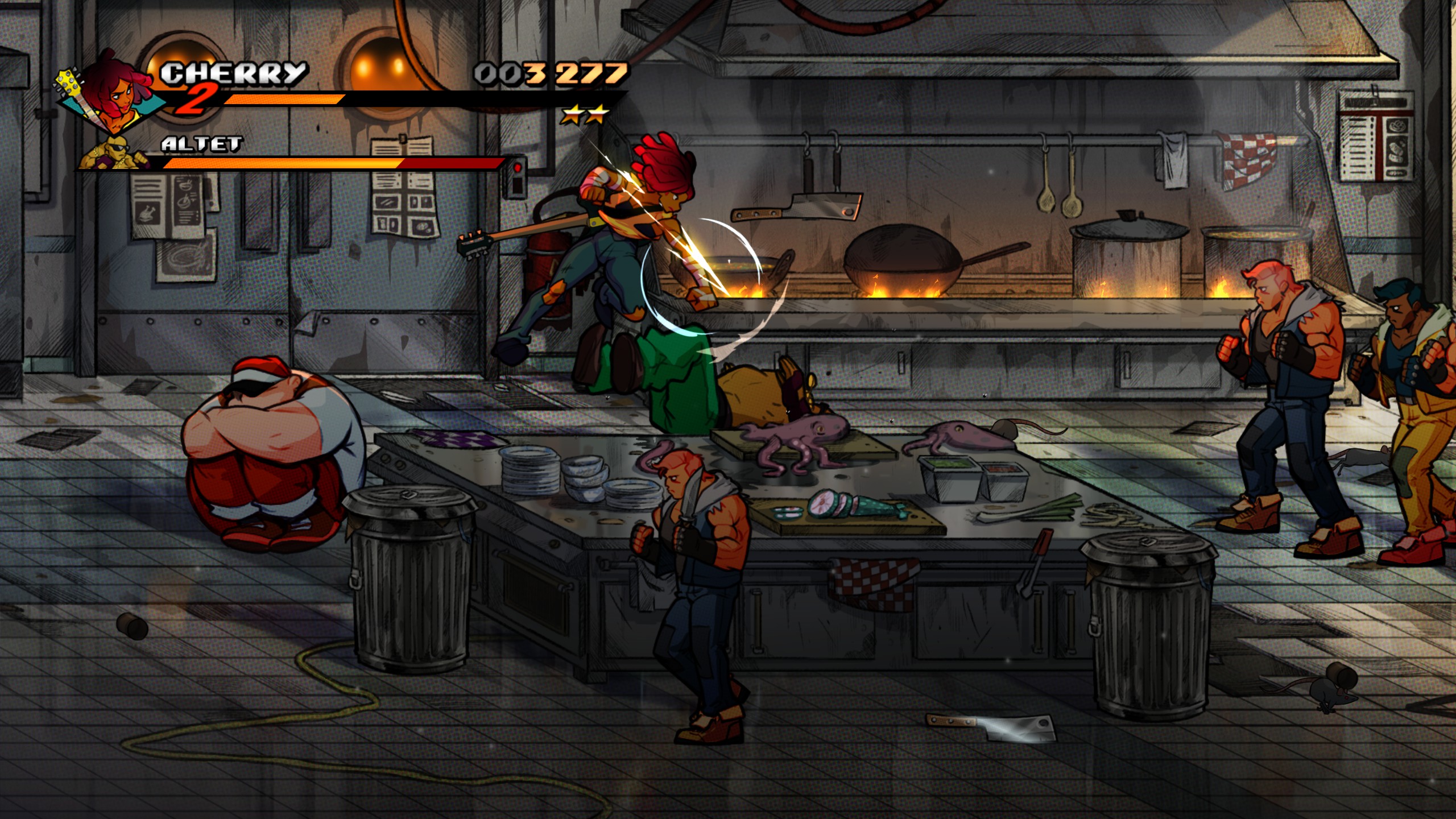
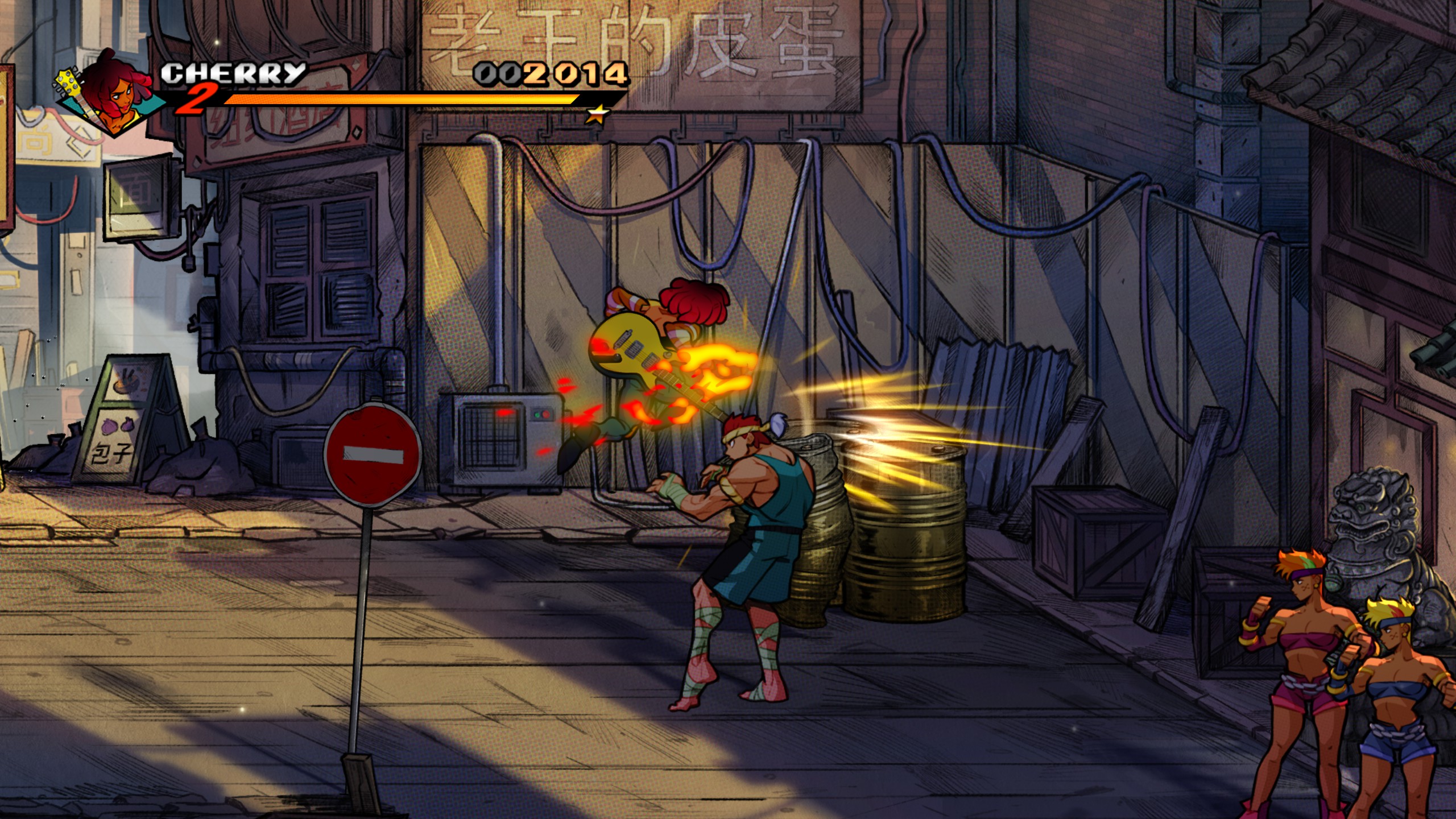
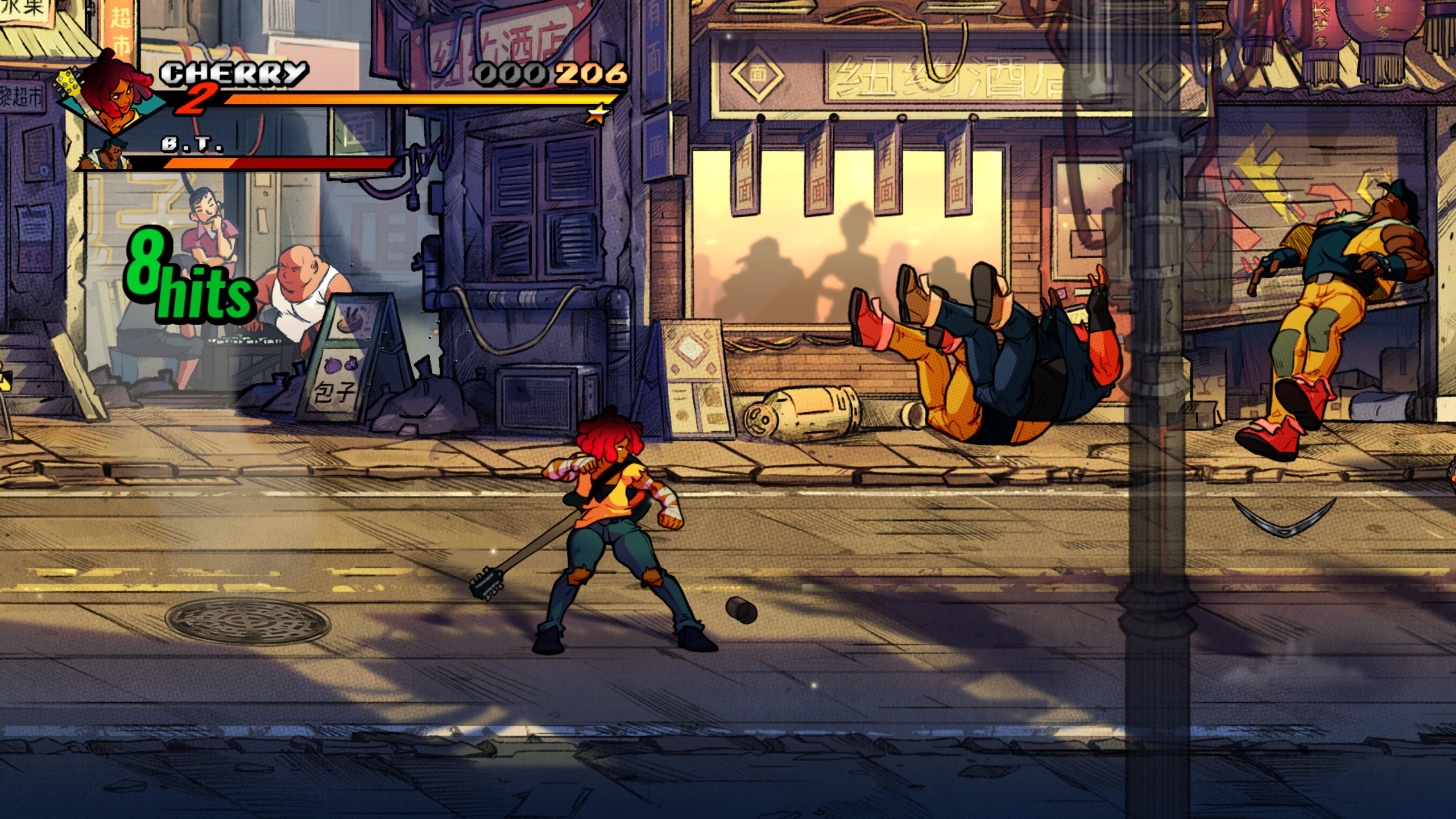
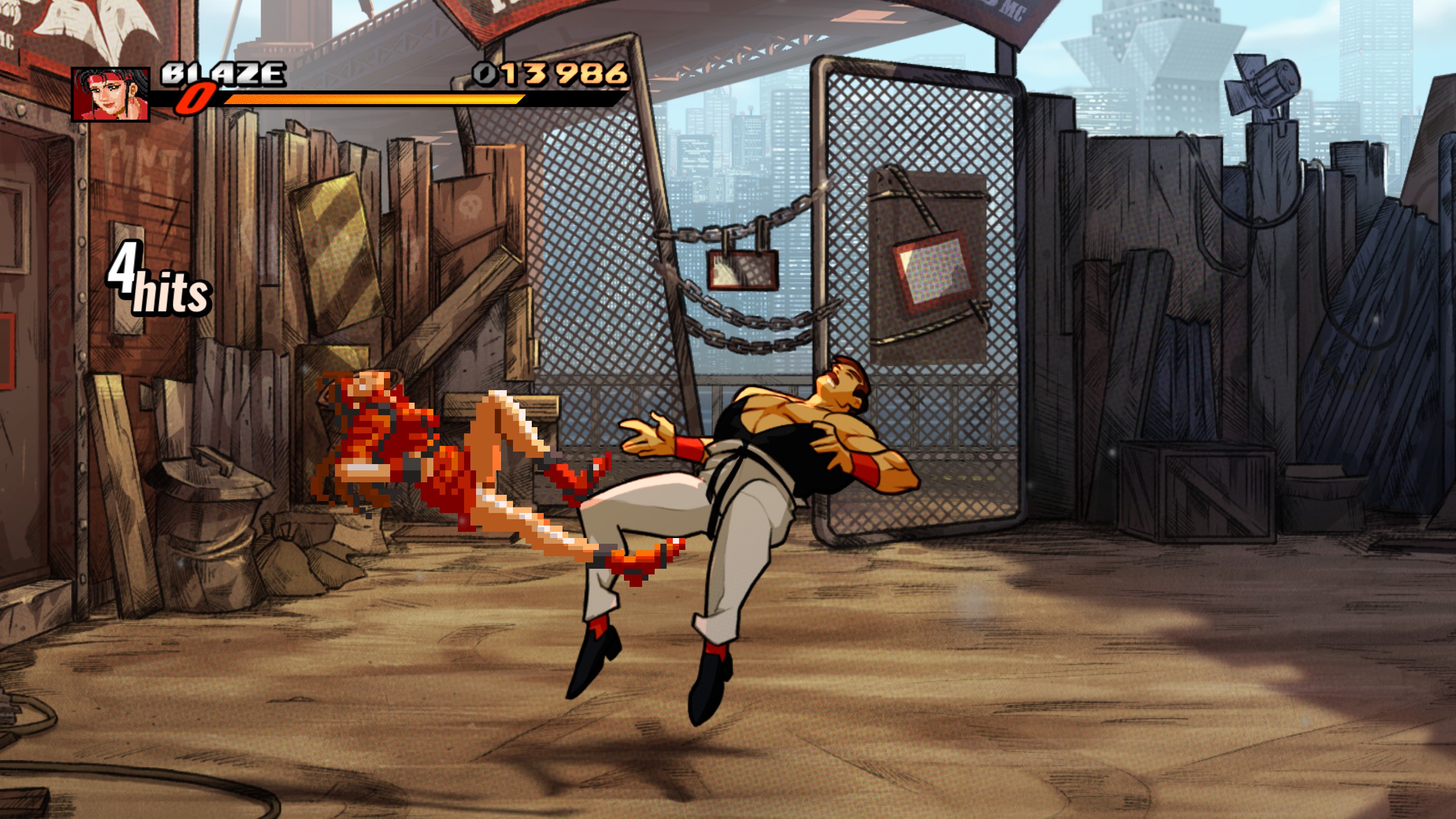
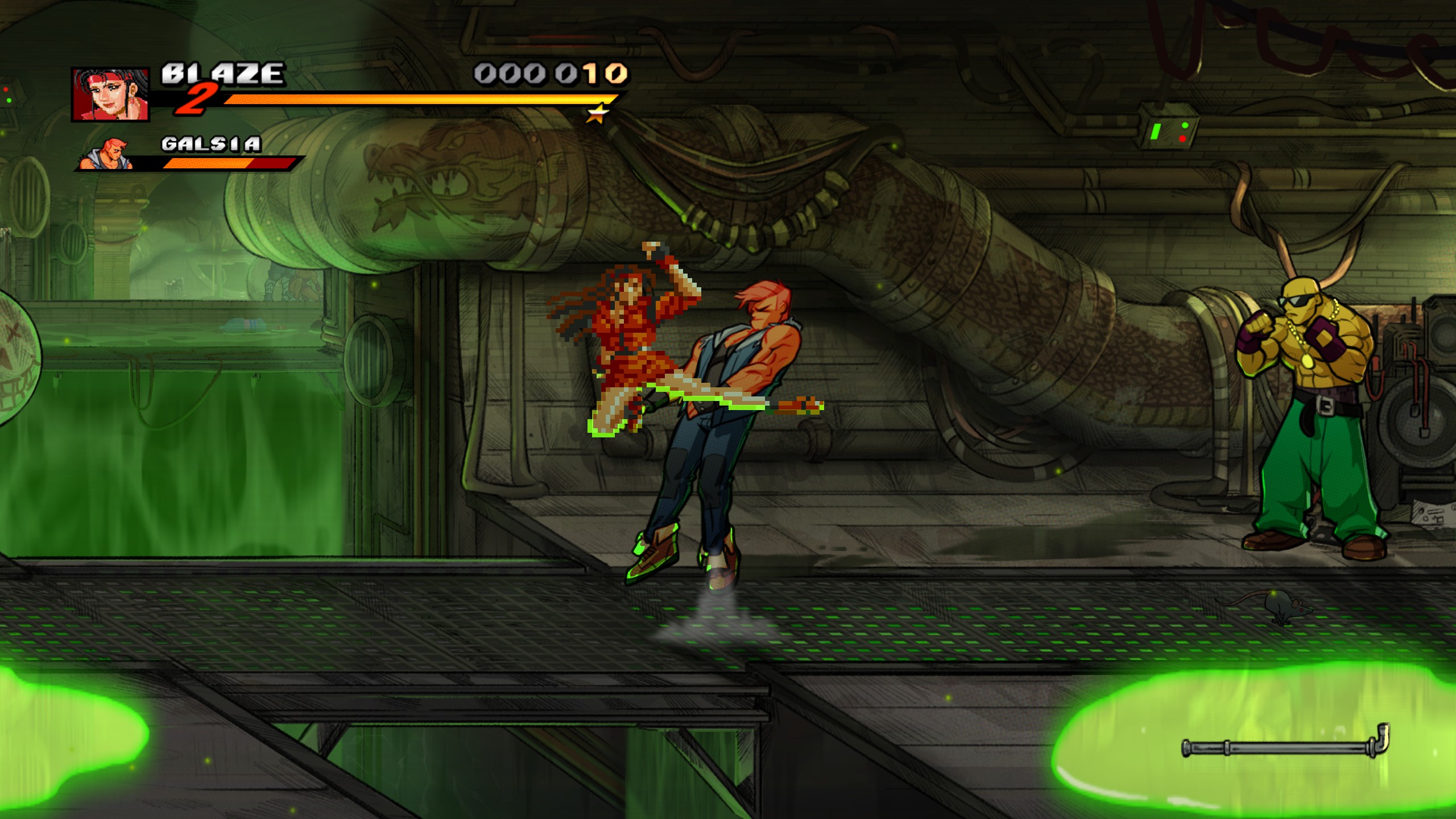
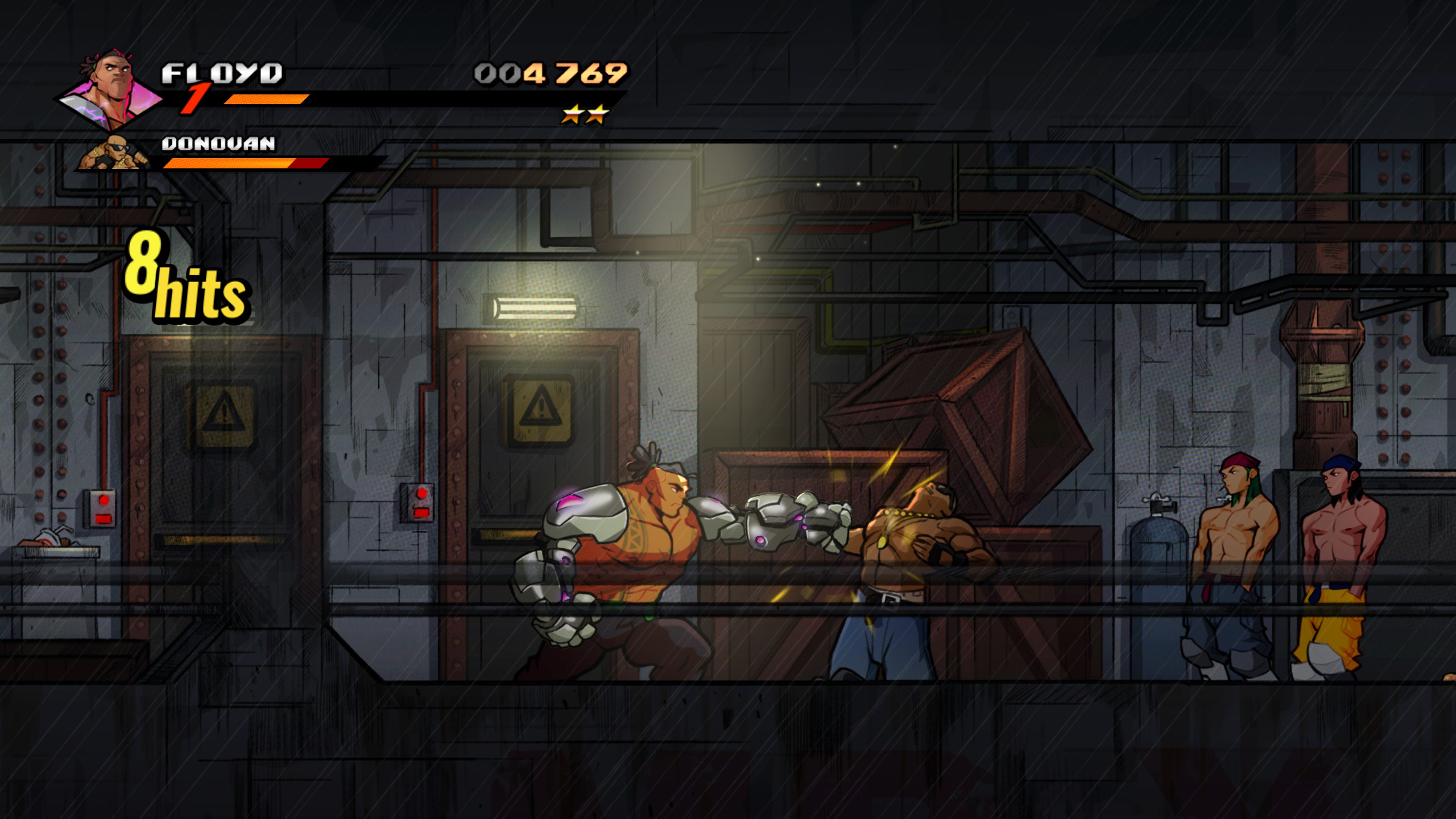
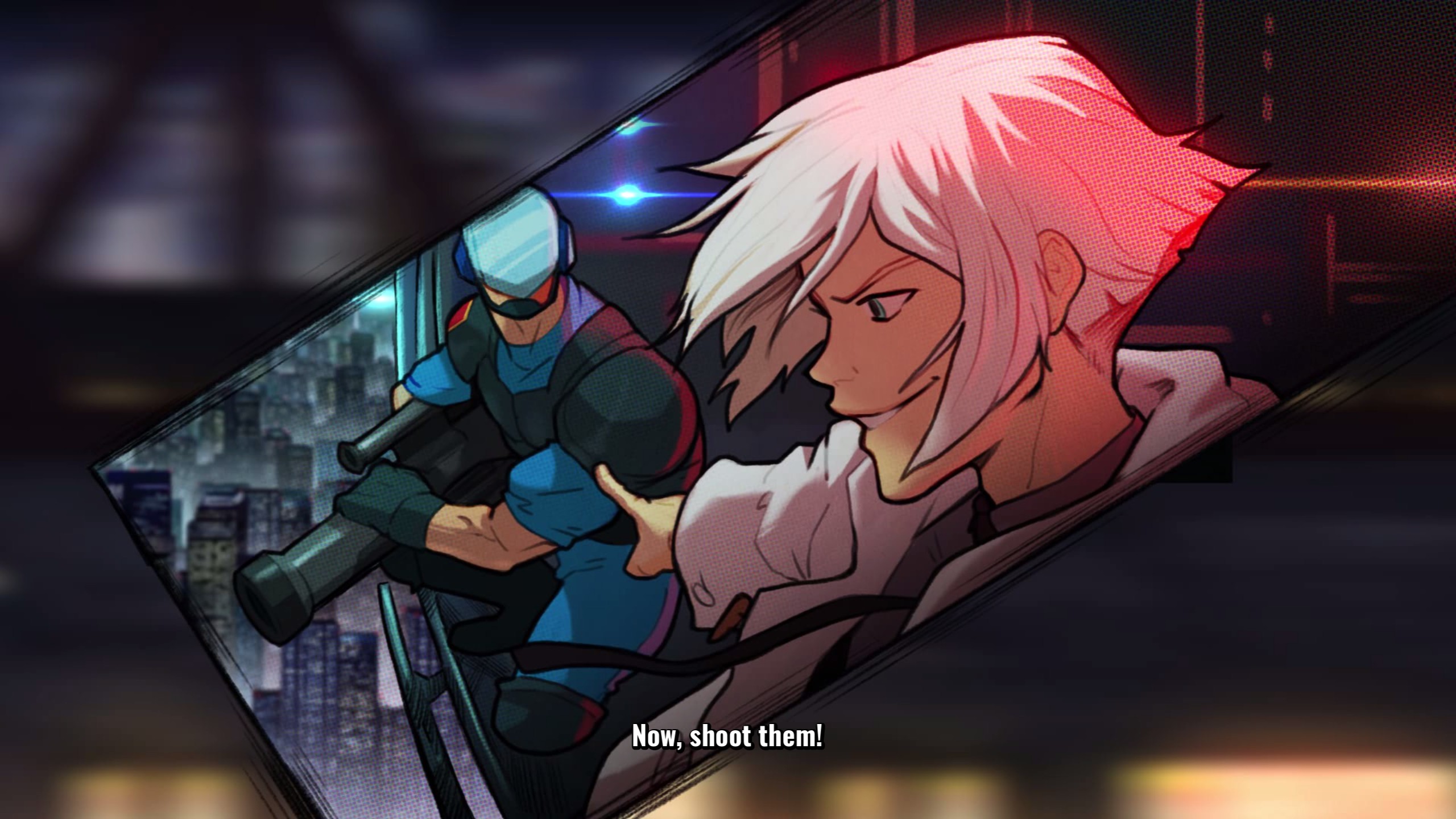
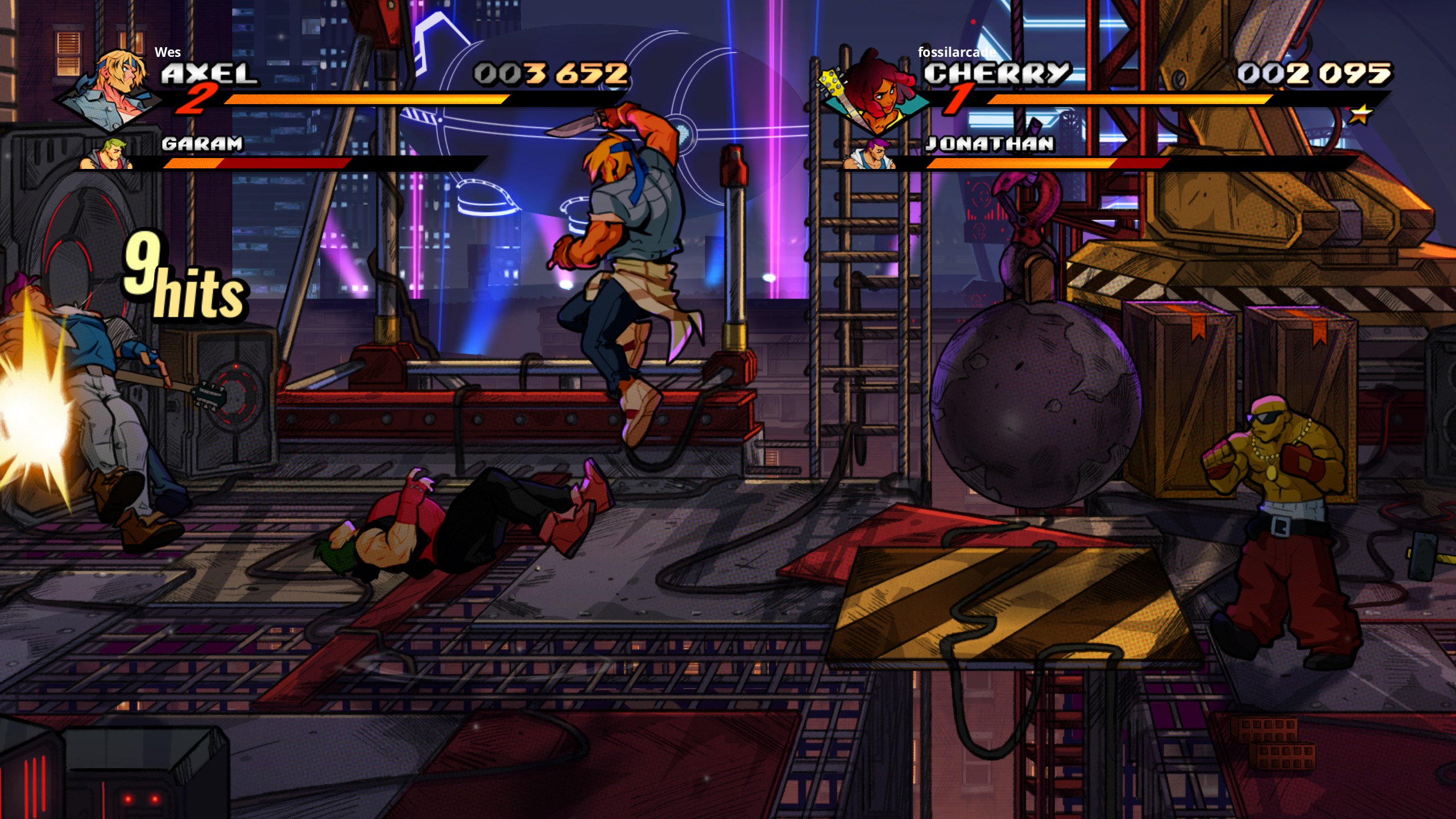
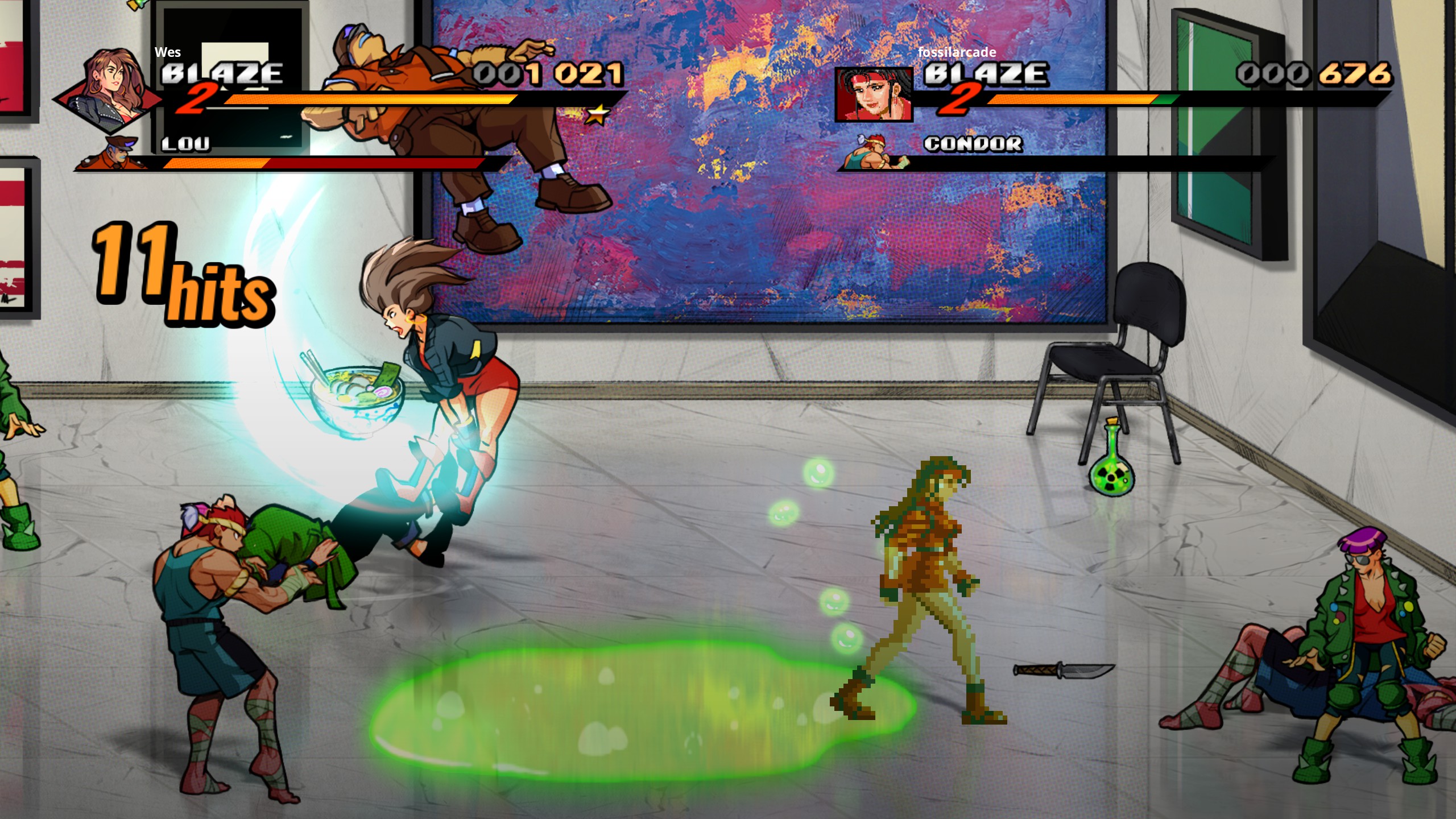
These moves do a great job of expanding on the possible actions you can take at any given moment, a nice change from classic beat-em-ups where you could press punch, or jump and punch. Each character plays quite differently. I gravitated towards the nimble Blaze, whose somersault kick is great at knocking enemies out of the air and piling them up.
At first I struggled with avoiding attacks with the slower characters, like Axel and series newcomer Floyd, but as I played more, Floyd and his giant metal arms became my main squeeze. One of his special attacks is a long-distance grab, which I used liberally to pull in weak enemies and then throw them into others to buy some breathing room.
Keep up to date with the most important stories and the best deals, as picked by the PC Gamer team.
Even if it's not trying to innovate, Streets of Rage 4 is delightfully playful with its stage designs and some little flourishes here and there. In Chinatown, you fight your way through a huge stream of enemies using polearms to keep your distance. In another level you fight your way down a hallway reminiscent of Oldboy; there's a sauna with a wet floor that you and enemies both go slipping and sliding across. One of many bosses returning from the classic games is a dominatrix, and when she literally whips her manservants into a frenzy, they no longer get stunned by your hits. In a genre this straightforward, even something as simple as a slippery floor can make a stage stand out.
There are a bunch of difficulty options, and when you fail a stage in the story mode, Streets of Rage 4 offers to help you out a little bit with bonuses like an extra life or three, at the expense of your score. The scoring system did often leave me frustrated, because it's how you unlock characters and also how you earn crucial extra lives during stages, but even after several hours I wasn't completely clear on how it worked. There's a combo meter for getting hits on enemies in rapid succession, but if you get hit mid-combo you lose all the points you were accruing. Except sometimes I'd get hit and get to keep the points. It wasn't obvious what was happening, and the game doesn't explain combos anywhere.
On normal difficulty solo and hard difficulty co-op, I rarely scored above a C, and even after a few hours with Streets of Rage, didn't feel like I had a good sense of how to significantly raise my score. I learned to be more patient, especially when dodging boss attacks, but most stages have moments where you're swarmed by enemies, and maintaining combos throughout those fights sure is tough. It's fine for a scoring system to judge you harshly and demand excellence, but that only works when a game teaches you (or gives you the tools to teach yourself) how to get better. That's one area where Streets of Rage 4 really could've modernized.
It's also just as frustrating today as it was 30 years ago to walk a little bit to the right and scroll a vital healing item off screen, with no option to go back. Freed from the limitations of ancient hardware, it feels silly not to have a little more leeway there. I'm not trying to backtrack through a whole level and wreck the pacing. Just let me go back three feet and grab the damn roast chicken! I'd love to see what these developers would do with an action game that isn't indebted to a decades-old series—this game does a great job of being Streets of Rage, but the developers clearly have the chops to make something more complex.
Four-player co-op is a nice option, though you can't have two people on one system and play online, too. Locally it's smooth as butter, but online, with one player in California and one in the UK, I noticed the game felt sluggish in comparison. There were no lag spikes, but I felt like I was wading through knee-high water the whole time.
Playing with another PC Gamer editor closer to me in California (I'm on gigabit, and he has a 200 megabit connection) it initially ran flawlessly, but intermittently became sluggish again. It was still playable, but I could immediately spot the difference. Neither of the teammates I played with said they noticed this slowdown, but they may just be less familiar than I am with how Streets of Rage 4 feels after 7 hours of play. Regardless, Streets of Rage 4 is definitely playable online, but based on my experience I'd wouldn't expect it to reliably match the fluidity of offline play.
The limitations of '90s-era design stand out more when you're playing Streets of Rage 4 solo. I had a blast in the more chaotic co-op playing with my roommate on the couch. I know there will be people who delight in exploring the invincibility frames of each attack and S rank every level on the hardest difficulty, but for me, these games are at their best when you're mashing buttons a lot and thinking a little.
Co-op on hard gave me exactly that: a 3-4 hour tour through some beautiful, creative stages, and a soundtrack that will still rule when the next Streets of Rage comes out, even if that takes another 25 years.
Streets of Rage doesn't do much to innovate, but it's a beautiful brawler with just enough depth to stay engaging through multiple runs.

Wes has been covering games and hardware for more than 10 years, first at tech sites like The Wirecutter and Tested before joining the PC Gamer team in 2014. Wes plays a little bit of everything, but he'll always jump at the chance to cover emulation and Japanese games.
When he's not obsessively optimizing and re-optimizing a tangle of conveyor belts in Satisfactory (it's really becoming a problem), he's probably playing a 20-year-old Final Fantasy or some opaque ASCII roguelike. With a focus on writing and editing features, he seeks out personal stories and in-depth histories from the corners of PC gaming and its niche communities. 50% pizza by volume (deep dish, to be specific).
